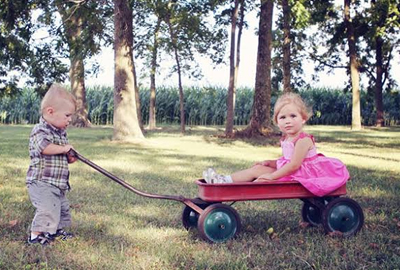This is the last in our series of blogs talking about the practical side of arrangements for children. We have talked about what you need to sort out, whether children can cope with two homes, and how to have that difficult conversation with them about separation.
In this blog we’re talking whether parents have to agree on all aspects of parenting. This is a tough subject for many separating parents. Often differences in parenting can have been a factor in the decision to separate so trying to work out how you co-parent going forwards can magnify these issues and turn them into a power struggle.
It can be helpful to re-frame this conversation and look at areas where you feel you need to have the same rules in each house. These might include:
• Screen time
• Bedtimes
• Autonomy for older children such as where they are allowed to go with their friends, how long they can be out unsupervised, and what time they have to be home
• What films, TV programmes and computer games you consider appropriate.
• What foods your children can and can’t eat – how much sugar are they allowed?
• Rules around homework, music practice and sporting activities or physical fitness

Children can and do understand that their parents are difficult people and that they think differently and that they deal with each parent differently. This helps them to understand that the world is made up of people with different views and approaches to life. Trying to make yourselves into the same person from your children’s perspective is something that is only going to cause arguments and make you both miserable.
That said you may wish to avoid a situation where your children seek to play one parent off against the other with phrases like “we’re allowed to do this at dad’s house”. Or “but mum doesn’t mind if we…….”. It may therefore help to give some thought to the following:
• Being able to have a conversation is vital in co-parenting. If your children say they’ve been allowed to do something at the other parent’s house that you’re not sure about then it helps to either know this isn’t true or to be able to ask the other parent what happened (sometimes the other parent has been caught out about something they were unaware of or the situation may not be quite as your children have said).
• Know where things are different between houses so that you can have conversations about this. For example, one parent might discipline differently to the other or one parent may organise evenings differently. If you’re both aware of what happens in the other person’s house then it helps you to understand what’s happening when you’re children are there.
• Try to accept that what happens at the other parent’s house is their choice. Unless it’s something that is likely to cause your children harm or upset it is more helpful to manage what goes on in your house than try to control what happens in the other parent’s house.
• If you find that a particular difference is causing an issue then try to have a constructive conversation about how you tackle this so you can have a shared approach to the difference. If you find these conversations difficult then consider using a family mediator to try to help facilitate constructive conversation for you both.
Other blogs that might help:
• A simple way to think about co-parenting
• Keeping children out of conflict: what it really means not to argue in front of them
If you’d like to get our blogs and other supportive resources directly into your inbox you can sign up to our free mailing list. We also have a separate mailing list for professionals working with separating couples. This will include details of our forthcoming training workshops and networking events.
If you’re a fan of social media then why not follow us there to get more of the things we share. If you feel able to share our posts so we can help more people then we’d be really grateful. You can find us on Facebook, Twitter or Pinterest. You can also find Louisa Whitney on Linkedin or Instagram.
